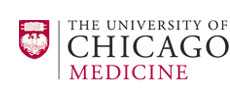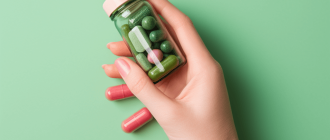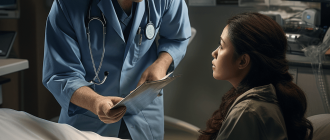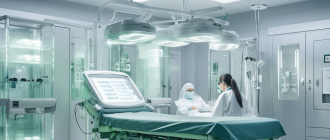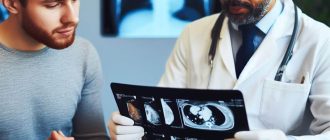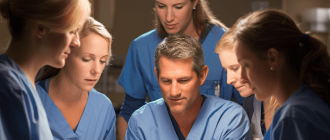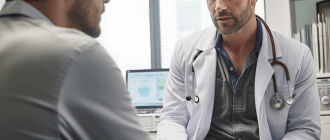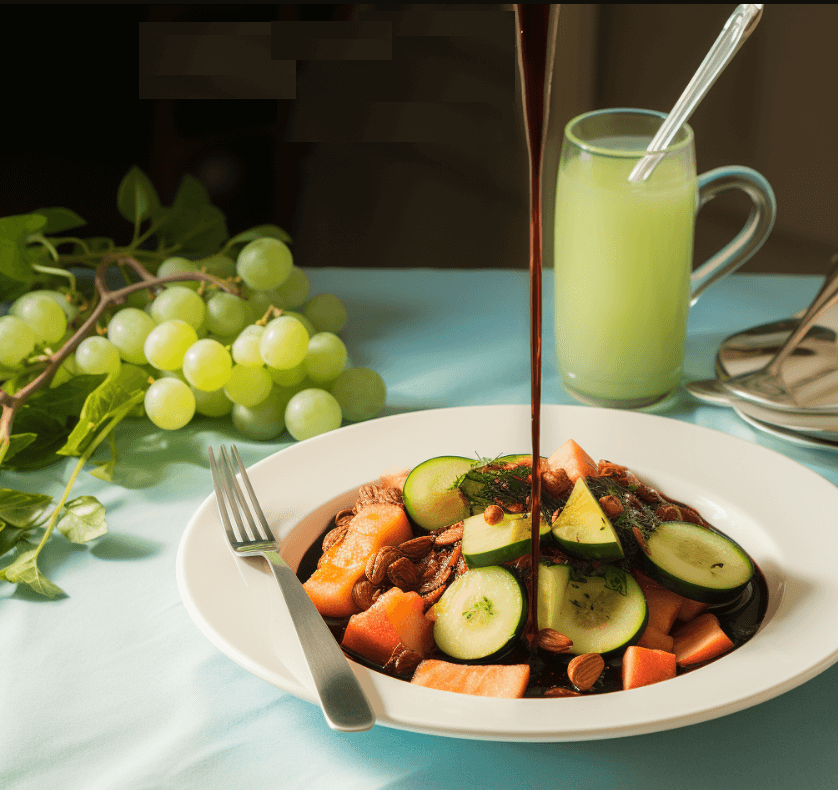 Post-Upper Endoscopy with Biopsy: Recommendations for a Healthy Diet
Post-Upper Endoscopy with Biopsy: Recommendations for a Healthy Diet
An upper endoscopy with biopsy is a medical procedure used to examine the upper digestive tract, including the esophagus, stomach, and the beginning of the small intestine. It is often performed to diagnose conditions such as ulcers, gastritis, and gastroesophageal reflux disease (GERD). After undergoing this procedure, it is important to follow a specific diet to aid in the healing process and prevent any complications.
Immediately after the procedure, your doctor will likely recommend a clear liquid diet. This type of diet includes fluids that are transparent and free from any solid particles. Examples of clear liquids include water, broth, plain tea, and apple juice. It is important to avoid any beverages that are colored or contain pulp, as well as any solid foods. What to eat after endoscopy?
As the healing process progresses, your doctor may recommend advancing your diet to include soft foods. Soft foods are easier to digest and put less strain on the gastrointestinal tract. Examples of soft foods include mashed potatoes, cooked vegetables, scrambled eggs, and yogurt. It is important to chew your food thoroughly and eat slowly to prevent any discomfort or complications.
Your doctor will provide specific instructions regarding your diet after the procedure, as it may vary depending on individual circumstances. It is important to follow these instructions closely to ensure a smooth recovery and minimize any potential risks or complications.
What to Do After Endoscopy Biopsy?
After an endoscopy biopsy, it is important to take certain steps to ensure proper healing and minimize any potential complications. Here are some recommendations to follow:
- Rest: It is normal to feel tired or drowsy after the procedure. Take it easy for the rest of the day and give your body time to recover.
- Diet: Your doctor will provide specific instructions regarding your diet after the endoscopy biopsy. In general, you may need to avoid certain foods or drinks for a period of time. Follow the recommended diet to prevent any irritation or damage to the biopsy site.
- Medications: If your doctor prescribed any medications after the endoscopy biopsy, make sure to take them as directed. These may include pain relievers, antibiotics, or medications to reduce inflammation.
- Activity restrictions: Depending on the results of the biopsy and the specific procedure performed, your doctor may recommend avoiding certain activities for a period of time. This may include heavy lifting, strenuous exercise, or certain medications that can interfere with healing.
- Follow-up appointments: Schedule a follow-up appointment with your doctor to discuss the results of the biopsy and any further treatment options. It is important to keep track of any changes in your symptoms and report them to your doctor.
- Monitor for complications: While complications after an endoscopy biopsy are rare, it is important to be aware of any signs of infection, excessive bleeding, or severe pain. Contact your doctor immediately if you experience any of these symptoms.
By following these recommendations, you can help ensure a smooth recovery after an endoscopy biopsy and optimize your chances of obtaining accurate and reliable results from the procedure.
Rest and Recovery After the Procedure
After undergoing an upper endoscopy with biopsy, it is important to allow your body time to rest and recover. The procedure can be physically and mentally taxing, and it is normal to feel tired and groggy afterward.
It is recommended to take it easy for the remainder of the day after the procedure. Avoid any strenuous activities or heavy lifting. Resting and taking short naps can help you recover faster.
You may experience some discomfort or soreness in your throat or abdomen after the procedure. This is normal and should subside within a day or two. Drinking plenty of fluids and sticking to a soft or liquid diet can help alleviate any discomfort.
It is important to follow any specific instructions provided by your doctor regarding medications, diet, and activity restrictions. Your doctor may prescribe pain medication or recommend over-the-counter remedies to help manage any discomfort.
If you experience any severe pain, bleeding, or difficulty swallowing after the procedure, it is important to contact your doctor immediately. These could be signs of complications and should be addressed promptly.
Overall, rest and recovery after an upper endoscopy with biopsy is essential for your body to heal properly. Take the time to rest, follow your doctor’s instructions, and listen to your body’s needs during this recovery period.
Avoiding Certain Activities
After an upper endoscopy with biopsy, it is important to avoid certain activities to ensure proper healing and minimize the risk of complications. Here are some activities to avoid:
- Avoid strenuous exercise or heavy lifting for at least 24 hours after the procedure.
- Avoid consuming alcohol or smoking tobacco, as these can irritate the digestive system and slow down the healing process.
- Avoid taking nonsteroidal anti-inflammatory drugs (NSAIDs) such as ibuprofen or aspirin, as they can increase the risk of bleeding.
- Avoid eating spicy or acidic foods that can irritate the stomach lining and cause discomfort.
- Avoid drinking caffeine or carbonated beverages, as these can also irritate the stomach and slow down healing.
- Avoid eating large meals, and instead opt for smaller, more frequent meals to reduce strain on the digestive system.
- Avoid wearing tight clothing around the waist, as this can put pressure on the stomach and interfere with healing.
It is important to follow these guidelines provided by your healthcare provider to ensure a smooth recovery and allow the biopsy site to heal properly. If you have any questions or concerns, consult with your healthcare provider.
Watching for Potential Complications
After an upper endoscopy with biopsy, it is important to watch for potential complications. Although complications are rare, it is still necessary to be vigilant and seek medical attention if any symptoms arise.
Some potential complications to watch for include:
- Excessive bleeding: If you experience severe or persistent bleeding from the site of the biopsy or notice black, tarry stools, it could be a sign of excessive bleeding. This requires immediate medical attention.
- Infection: Infection can occur at the site of the biopsy or in other parts of the body. Symptoms of infection may include fever, redness, swelling, or increased pain at the biopsy site. If you experience any signs of infection, it is important to contact your doctor.
- Perforation: Although rare, there is a risk of perforation during an upper endoscopy. Perforation is a tear or hole in the lining of the digestive tract. Symptoms may include severe abdominal pain, fever, chills, or difficulty swallowing. If you experience any of these symptoms, seek immediate medical attention.
- Reaction to anesthesia: Some individuals may have a reaction to the anesthesia used during the procedure. Symptoms of an allergic reaction may include difficulty breathing, hives, or swelling of the face, lips, tongue, or throat. If you experience any of these symptoms, seek emergency medical attention.
It is important to follow any post-procedure instructions provided by your doctor and to attend any follow-up appointments. If you have any concerns or questions about potential complications, do not hesitate to contact your healthcare provider.
What Not to Eat After Endoscopy?
After an upper endoscopy with biopsy, it is important to be mindful of your diet to ensure proper healing and avoid any complications. Here are some foods to avoid after the procedure:
1. Spicy Foods: Spicy foods can irritate the digestive tract and may cause discomfort or inflammation. It is best to avoid foods such as hot peppers, chili powder, and spicy sauces.
2. Acidic Foods: Acidic foods like citrus fruits (oranges, lemons, grapefruits), tomatoes, and vinegar can also cause irritation to the esophagus and stomach lining. It is recommended to avoid these foods until you have fully recovered.
3. Carbonated Drinks: Carbonated drinks can lead to bloating, gas, and discomfort. It is advised to steer clear of carbonated beverages like soda, sparkling water, and fizzy drinks.
4. Hard and Crunchy Foods: Hard and crunchy foods can be difficult to swallow and may cause irritation or scratching of the throat or esophagus. Avoid foods like raw vegetables, chips, nuts, and hard candies.
5. Alcohol: Alcohol can irritate the stomach lining and delay the healing process. It is best to avoid alcoholic beverages until you have fully recovered from the endoscopy procedure.
6. Caffeinated Beverages: Caffeinated beverages like coffee and tea can increase stomach acid production and may cause discomfort or irritation. It is advisable to limit or avoid these drinks until you have fully healed.
7. Fatty and Fried Foods: Fatty and fried foods can be harder to digest and may cause more discomfort after the endoscopy procedure. It is recommended to avoid foods like fried chicken, french fries, and greasy burgers.
8. Dairy Products: Some people may experience lactose intolerance or sensitivity after an endoscopy. It is best to avoid dairy products like milk, cheese, and ice cream if you notice any digestive symptoms.
Remember to follow any specific instructions provided by your doctor or healthcare provider regarding your diet after the endoscopy procedure. It is important to listen to your body and make choices that promote healing and comfort.
Avoiding Hard, Crunchy, and Spicy Foods
After undergoing an upper endoscopy with biopsy, it is important to follow a specific diet to ensure proper healing and minimize discomfort. One key aspect of this diet is to avoid consuming hard, crunchy, and spicy foods. These types of foods can irritate the throat and stomach lining, potentially causing pain and inflammation.
When choosing what to eat, it is best to opt for softer, easily digestible foods. This includes foods such as cooked vegetables, soft fruits, tender meats, and well-cooked grains. These types of foods are less likely to cause irritation or discomfort during the healing process.
Additionally, it is important to avoid spicy foods as they can also irritate the throat and stomach. Spices such as chili peppers, hot sauce, and curry should be avoided. Instead, opt for milder seasonings or herbs to add flavor to your meals.
It is also important to be mindful of the texture of the foods you consume. Avoid foods that are hard or crunchy, such as raw vegetables, nuts, seeds, and hard candies. These types of foods can be difficult to chew and may cause irritation or discomfort.
During the healing process, it is recommended to eat smaller, more frequent meals to avoid putting too much strain on the digestive system. This can help minimize any potential discomfort and aid in the healing process.
Remember to follow any specific dietary instructions provided by your healthcare provider. If you have any questions or concerns about your diet after an upper endoscopy with biopsy, it is best to consult with your healthcare provider for personalized guidance.
Eating a Low Fiber Diet Temporarily
After an upper endoscopy with biopsy, your doctor may recommend following a low fiber diet temporarily to allow your digestive system to heal. A low fiber diet consists of foods that are easy to digest and do not require much effort from your gastrointestinal tract.
Here are some guidelines to follow when consuming a low fiber diet:
Limit high fiber foods: Avoid foods that are high in fiber, such as whole grains, nuts, seeds, and raw fruits and vegetables. These foods can be hard to digest and may cause discomfort or irritation in your digestive system.
Choose refined grains: Opt for refined grains instead of whole grains. This includes foods like white bread, white rice, and pasta made from refined flour.
Cook or steam vegetables: If you want to include vegetables in your diet, cook or steam them until they are soft and easy to chew. Avoid raw or crunchy vegetables, as they can be difficult to digest.
Include lean proteins: Focus on including lean proteins in your diet, such as skinless poultry, fish, eggs, and tofu. These protein sources are easier to digest compared to fatty meats.
Avoid high fat foods: Limit your intake of high fat foods, as they can slow down digestion and cause discomfort. This includes fried foods, fatty cuts of meat, and high fat dairy products.
Drink plenty of fluids: It is important to stay hydrated while following a low fiber diet. Drink plenty of water throughout the day and avoid caffeinated beverages, as they can dehydrate you.
Listen to your body: Pay attention to how your body reacts to different foods. If you experience any discomfort or digestive issues after consuming certain foods, avoid them until you have fully recovered.
Remember to consult with your doctor or a registered dietitian before making any changes to your diet. They can provide personalized recommendations based on your specific needs and health condition.
Limiting Alcohol and Caffeine
After an upper endoscopy with biopsy, it is important to limit your consumption of alcohol and caffeine. Both alcohol and caffeine can irritate the lining of the stomach and increase acid production, which can lead to digestive discomfort and inflammation.
Alcohol is a known irritant to the gastrointestinal tract and can worsen symptoms such as heartburn and indigestion. It can also increase the risk of developing complications such as gastritis or ulcers. Therefore, it is advisable to avoid or limit alcohol consumption, especially if you have a history of stomach issues.
Caffeine, found in beverages such as coffee, tea, and energy drinks, can also stimulate acid production in the stomach. This can exacerbate symptoms of acid reflux or gastroesophageal reflux disease (GERD). It is recommended to reduce your intake of caffeinated beverages or switch to decaffeinated alternatives to help manage these symptoms.
In addition to limiting alcohol and caffeine, it is important to adopt a healthy and balanced diet after an upper endoscopy with biopsy. This includes consuming a variety of fruits, vegetables, whole grains, lean proteins, and healthy fats. It is also important to stay hydrated by drinking plenty of water throughout the day.
If you have any concerns or questions about your diet after an upper endoscopy with biopsy, it is best to consult with your healthcare provider or a registered dietitian. They can provide personalized recommendations based on your specific needs and medical history.
When Can You Eat After Endoscopy with Biopsy?
After undergoing an upper endoscopy with biopsy, it is important to follow certain dietary guidelines to ensure proper healing and recovery. While the specific instructions may vary depending on your individual case, there are some general recommendations that can help guide your post-endoscopy diet.
1. Clear liquids: Immediately after the procedure, you will be allowed to consume clear liquids such as water, broth, and apple juice. These help to prevent dehydration and ease the transition back to normal eating.
2. Soft foods: As your throat and digestive system recover, you can gradually introduce soft, bland foods such as mashed potatoes, yogurt, and scrambled eggs. These are easier to digest and less likely to irritate the biopsy site.
3. Avoid spicy, acidic, and rough-textured foods: For the first few days after the procedure, it is best to avoid foods that can cause irritation or discomfort, such as spicy foods, citrus fruits, and foods with rough textures. These can potentially aggravate the biopsy site and delay healing.
4. Gradual reintroduction of solid foods: Once you are comfortable with soft foods, you can slowly reintroduce solid foods into your diet. Start with easily digestible options like cooked vegetables, lean proteins, and whole grains.
5. Stay hydrated: It is important to drink plenty of fluids throughout the recovery process to prevent dehydration and promote healing. Aim for at least 8 cups of water per day, and avoid alcohol and caffeinated beverages, as they can dehydrate the body.
6. Follow your doctor’s instructions: Your doctor may provide specific dietary guidelines based on the results of your endoscopy and biopsy. It is important to follow these instructions closely to ensure proper healing and avoid any complications.
Remember, everyone’s recovery process is different, and what works for one person may not work for another. It is important to listen to your body and make adjustments to your diet as needed. If you have any concerns or questions about your post-endoscopy diet, be sure to consult with your doctor or a registered dietitian.
Eating Soft Foods After Anesthesia Wears Off
After undergoing upper endoscopy with biopsy, it is important to gradually reintroduce food into your diet once the effects of anesthesia wear off. Eating soft foods can help ease any discomfort and allow your digestive system to recover.
Soft foods are easy to chew and swallow, which can help prevent any irritation or damage to your throat or esophagus. They are also gentle on your stomach and can minimize the risk of nausea or vomiting.
Some examples of soft foods that you can include in your diet after anesthesia wears off include:
- Yogurt: Choose plain, unsweetened yogurt that is easy to digest.
- Mashed potatoes: Opt for smooth and creamy mashed potatoes without any added spices or butter.
- Scrambled eggs: Cook eggs until they are soft and easy to chew.
- Applesauce: Look for unsweetened applesauce that is smooth in consistency.
- Smoothies: Blend soft fruits, yogurt, and a liquid of your choice to create a nutritious and easy-to-consume drink.
It is important to listen to your body and eat at your own pace. Take small bites and chew your food thoroughly to aid digestion. Avoid foods that are hard, spicy, or acidic, as these can irritate your digestive system.
Remember to stay hydrated by drinking plenty of water throughout the day. Avoid drinking carbonated beverages, as they can cause bloating and discomfort.
If you experience any unusual symptoms or have concerns about your diet after anesthesia wears off, it is important to consult with your healthcare provider for personalized guidance.
Gradually Resuming Normal Diet Over 2-3 Days
After an upper endoscopy with biopsy, it is important to gradually resume your normal diet to allow your body to adjust. This will help prevent any discomfort or complications during the healing process.
Here is a suggested plan for gradually reintroducing foods over a period of 2-3 days:
| Day | Recommended Diet |
|---|---|
| Day 1 | Stick to a clear liquid diet, including water, broth, and clear juices. Avoid any solid foods. |
| Day 2 | Continue with the clear liquid diet, but you can also include some semi-solid foods such as yogurt, pudding, and mashed potatoes. |
| Day 3 | You can now start introducing more solid foods into your diet. Begin with soft foods like scrambled eggs, oatmeal, and cooked vegetables. |
Remember to chew your food thoroughly and take small bites to make digestion easier. Avoid any hard, spicy, or acidic foods that may irritate your digestive system.
If you experience any discomfort or have any concerns about your diet after the upper endoscopy, be sure to consult with your doctor or a registered dietitian for personalized advice.
Paying Attention to Your Body’s Signals
After undergoing an upper endoscopy with biopsy, it is important to pay close attention to your body’s signals and make necessary adjustments to your diet. This will help promote healing and prevent any potential complications.
One of the most important signals to listen to is your body’s level of discomfort or pain. It is normal to experience some mild discomfort or soreness after the procedure, but if you are experiencing severe or worsening pain, it is important to contact your healthcare provider.
In addition to pain, it is also important to pay attention to any changes in your bowel movements. If you notice any significant changes in frequency, consistency, or color of your stools, it may be an indication that there is a problem that needs to be addressed.
Another signal to be aware of is any signs of infection. If you notice any redness, swelling, or discharge at the incision site, or if you develop a fever, it is important to seek medical attention as these could be signs of an infection.
Furthermore, paying attention to your body’s signals includes being mindful of any changes in appetite or difficulty swallowing. If you experience a loss of appetite or have trouble swallowing, it is important to contact your healthcare provider as these could be signs of complications.
Lastly, it is important to pay attention to any signs of allergic reactions. If you develop hives, rash, difficulty breathing, or any other symptoms of an allergic reaction, it is important to seek immediate medical attention.
Overall, paying attention to your body’s signals and promptly addressing any concerns or changes can help ensure a smooth recovery after an upper endoscopy with biopsy. Remember to follow your healthcare provider’s instructions and reach out to them if you have any questions or concerns.
Sample Meal Plans and Food Options for After Endoscopy
After undergoing an upper endoscopy with biopsy, it is important to follow a specific diet to allow your digestive system to heal properly. Here are some sample meal plans and food options that can be included in your diet after the procedure:
Day 1:
Breakfast: Soft scrambled eggs with a slice of whole wheat toast and a cup of herbal tea.
Lunch: Creamy vegetable soup with pureed vegetables and a side of steamed white rice.
Snack: Greek yogurt with mashed banana.
Dinner: Baked chicken breast with steamed vegetables and quinoa.
Snack: A small handful of almonds.
Day 2:
Breakfast: Oatmeal with mashed berries and a drizzle of honey.
Lunch: Spinach salad with grilled chicken, cherry tomatoes, and olive oil dressing.
Snack: Carrot sticks with hummus.
Dinner: Grilled salmon with roasted sweet potatoes and sautéed green beans.
Snack: A piece of dark chocolate.
Day 3:
Breakfast: Whole grain toast with avocado and a poached egg.
Lunch: Quinoa salad with mixed vegetables and a lemon vinaigrette.
Snack: Apple slices with almond butter.
Dinner: Turkey meatballs with zucchini noodles and marinara sauce.
Snack: A handful of grapes.
Remember to drink plenty of water throughout the day and avoid foods that may irritate your digestive system, such as spicy or greasy foods. It is also important to listen to your body and eat small, frequent meals to avoid any discomfort. Consult with your healthcare provider for a personalized meal plan that suits your specific dietary needs.
Question-answer:
Can I eat immediately after an upper endoscopy with biopsy?
No, you cannot eat immediately after an upper endoscopy with biopsy. You will need to wait until the effects of the anesthesia wear off and your throat is no longer numb before you can eat or drink anything.
What can I eat after an upper endoscopy with biopsy?
After an upper endoscopy with biopsy, you should start with clear liquids such as water, broth, and tea. As you start to feel better, you can gradually introduce soft foods such as yogurt, mashed potatoes, and scrambled eggs. Avoid spicy, greasy, and acidic foods that may irritate your throat.
How long should I follow a special diet after an upper endoscopy with biopsy?
The length of time you should follow a special diet after an upper endoscopy with biopsy will depend on the specific instructions from your doctor. In general, you may need to follow a soft food or bland diet for a few days to a week until your throat heals. Your doctor will provide you with specific guidelines.
Can I drink alcohol after an upper endoscopy with biopsy?
It is best to avoid drinking alcohol for at least 24 hours after an upper endoscopy with biopsy. Alcohol can irritate your throat and may interact with any medications you were given during the procedure. It is important to follow the instructions provided by your doctor.
Are there any foods I should avoid after an upper endoscopy with biopsy?
After an upper endoscopy with biopsy, you should avoid spicy, greasy, and acidic foods that may irritate your throat. Some examples include hot sauce, fried foods, citrus fruits, and tomatoes. Stick to soft, bland foods that are easy to swallow and digest.
What is an upper endoscopy with biopsy?
An upper endoscopy with biopsy is a medical procedure that involves the insertion of a thin, flexible tube with a camera and light source (endoscope) into the mouth and down the esophagus, stomach, and small intestine. During the procedure, small tissue samples, called biopsies, may be taken for further examination.
Why would someone need an upper endoscopy with biopsy?
An upper endoscopy with biopsy may be performed to diagnose or monitor various digestive disorders, such as acid reflux, gastritis, ulcers, celiac disease, or to check for the presence of abnormal growths, such as polyps or tumors.
What should I expect after an upper endoscopy with biopsy?
After the procedure, you may experience some mild discomfort or a sore throat. It is common to have a bloated feeling or pass gas due to the air that was used to inflate the digestive tract during the procedure. Your doctor will provide specific instructions on diet and medication after the procedure, but in general, you may need to avoid certain foods or medications for a period of time.
Can I eat normally after an upper endoscopy with biopsy?
After an upper endoscopy with biopsy, your doctor may recommend a soft or liquid diet for the first few days to allow your digestive tract to recover. This may include foods such as soups, yogurt, mashed potatoes, or smoothies. It is important to follow your doctor’s instructions and gradually reintroduce solid foods into your diet as tolerated.
